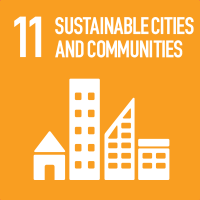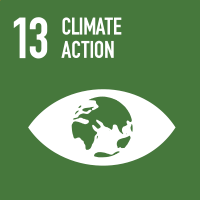Studying at the University of Verona
Here you can find information on the organisational aspects of the Programme, lecture timetables, learning activities and useful contact details for your time at the University, from enrolment to graduation.
Study Plan
This information is intended exclusively for students already enrolled in this course.If you are a new student interested in enrolling, you can find information about the course of study on the course page:
Laurea magistrale in Marketing e comunicazione d'impresa - Enrollment from 2025/2026The Study Plan includes all modules, teaching and learning activities that each student will need to undertake during their time at the University.
Please select your Study Plan based on your enrollment year.
1° Year
| Modules | Credits | TAF | SSD |
|---|
2° Year activated in the A.Y. 2023/2024
| Modules | Credits | TAF | SSD |
|---|
| Modules | Credits | TAF | SSD |
|---|
| Modules | Credits | TAF | SSD |
|---|
| Modules | Credits | TAF | SSD |
|---|
Legend | Type of training activity (TTA)
TAF (Type of Educational Activity) All courses and activities are classified into different types of educational activities, indicated by a letter.
Place e destination marketing (2023/2024)
Teaching code
4S010486
Academic staff
Coordinator
Credits
9
Language
Italian
Scientific Disciplinary Sector (SSD)
SECS-P/08 - MANAGEMENT
Period
Primo semestre (lauree magistrali) dal Oct 2, 2023 al Dec 22, 2023.
Courses Single
Authorized
Prerequisites and basic notions
Participants are expected to have a basic knowledge of strategic and operational marketing.
Program
• Introduction: a multidisciplinary approach to place and destination marketing
• Place marketing: definitions of marketing and place - The territory as a system and its finalities
• The place as a tourism destination
• Macro trends in the tourism industry and marketing implications for firms and destinations
• Space, place, landscape, environment, time, inhabitants - The brand concept
• Valuing and managing a territory - Quality of life and BES indicators
• Place marketing and communication strategy
• Local authorities, associations and governance - The Territory Coach.
• Place identity and “genius loci" - From the brand to the brand logo
• Place marketing plan and economic development - Case study "Città Metropolitana di Genova"
• Place marketing and tourism - Governance: DMOs, Urban Labs, Urban Centers and project financing in public-private relationships
The Course will include:
- a Project work with brainstorming and focus groups
- guest lectures from managers and entrepreneurs
Bibliography
Didactic methods
The teaching includes frontal and interactive teaching, as well as the carrying out of laboratory activities aimed at setting up a tourism or place marketing plan. A number of meetings with company witnesses are also planned.
Non-attending students will study some selected references available on moodle instead of the project work.
Learning assessment procedures
Learning outcomes will be verified through an oral test, differentiated for attending and non-attending students.
For attending students: the exam consists in the discussion of the marketing plan developed starting from the laboratory activities and in three open-ended questions.
For non-attending students: the exam consists of five open-ended questions.
Evaluation criteria
- Level of knowledge acquired.
- Ability to apply knowledge to real cases and situations.
- Ability to use specialized language.
Criteria for the composition of the final grade
For attending students, the final grade will be given by the sum of the scores obtained in discussion of the marketing plan (maximum 12 points) and the three answers (maximum 6 points per answer).
For non-attending students, the final grade will be given by the sum of the scores obtained in the five answers (maximum 6 points per answer).
Exam language
Italiano




